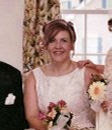In the opening Hannan extols the virtues of a group like Regular Folks. Hannan states "that they speak for all the decent people, the hard-working people, the family people, the people who stick up for themselves, who don't always going whining to the government for solutions, try and look after their neighbors rather than expect the government to do it for them and who now feel with justice ripped off and lied to and taken for granted and ignored overtaxed and over-regulated and angry and someone ought to speak for them." Hannan repeats a quote from Edmund Burke to express the difference between the politicians and the regular folks.
Because half-a-dozen grasshoppers under a fern make the field ring with their importunate chink, whilst thousands of great cattle, reposed beneath the shadow of the British oak, chew the cud and are silent, pray do not imagine that those who make the noise are the only inhabitants of the field;This is where Hannan finds Americans in our situation with our government. "There is a repository of good sense in the population that finds little articulation among the political cast."
As Hannan was asked to give a British response to the tea parties, he jokes about the difficulties in researching this topic. He quips that of course these haven't happened according to MSM. He Googled around and found they were fringe gathering of racist fruitcakes but notes these derogatory descriptions were used to marginalize the original tea partiers in Boston. This was a group described as misfits, thuggish longshoreman and a couple of Mohican Indians. Of course history has long since proved these characterizations to be untrue.
What were the grievances of this group of misfits? Hannan lists the following:
the concern that concentration of power led to malfeasance and corruption.
They wanted jurisdiction to be dispersed. They wanted decisions to be taken as closely as possible to the people they affect. They believed laws should not be passed but with popular consent. Taxes should not be levied but by elected representatives and that the executive should be answerable to the legislature. Hannan goes on to say that unless he has misunderstood this is exactly what the current tea partiers are pushing for and that he finds "it extraordinary that at this stage you should be having to have this same argument again". Indeed it is extraordinary.
Hannan goes on to explain why he comes as a British politician to hymn the virtues of the original Patriot leaders and those who wrote the Constitution. Most of the grievances of the founding fathers were shared by a majority of the British population. He estimates it was probably shared by 2/3 of the the British people. Hannan suggests this seems less a surprising notion if you go back to what was being said by the Founding Fathers at the time, "they didn't see themselves as revolutionaries, they saw themselves as conservatives."


























No comments:
Post a Comment